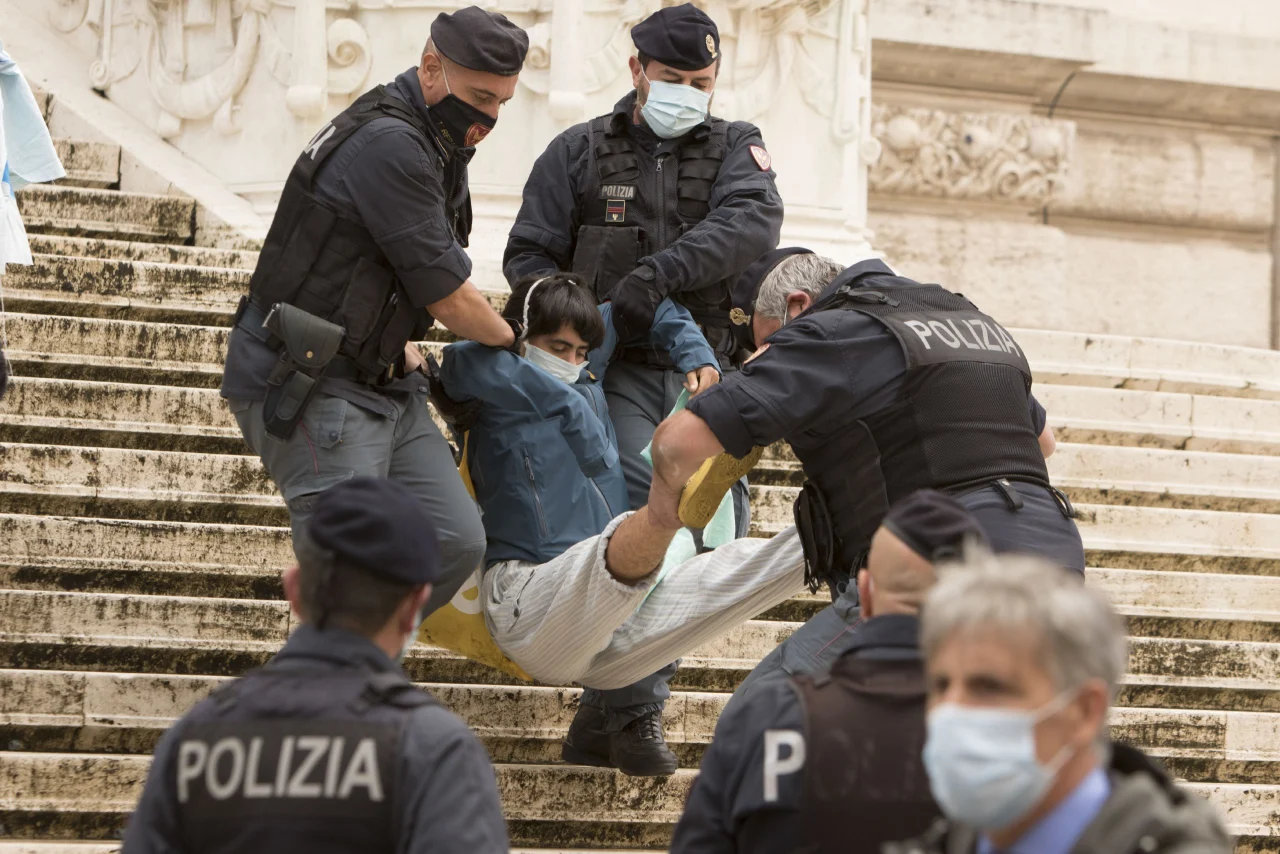ITALY: Security Law enacted in June 2025, but its measures were already applied before approval
Italy’s new Security Law, officially passed in April 2025 as a decree, in a questionable procedure that bypassed the parliament, was converted into law by June 2025. The law significantly expands police powers over public assemblies and protests. However, several incidents show that its repressive provisions were already being applied in practice before the formal approval. CSOs point to a pattern of pre-emptive enforcement that has increasingly criminalised peaceful protest and environmental activism. This signals a broader systemic deterioration of civic space, the rule of law and democracy in Italy, with the Security Law merely formalising practices that were already being used to silence dissent, particularly under the government of Giorgia Meloni.
In the years leading up to the decree, activists, especially those campaigning for environmental and climate justice, began facing severe legal consequences for symbolic, non-violent protest actions. These included spreading mud or applying washable paint to monuments and buildings of cultural significance, tactics intended to draw attention to climate inaction without causing permanent damage. Despite the peaceful nature of these actions, authorities responded with heavy legal charges, including criminal trials, financial penalties, and in some cases, jail sentences. These sanctions reflect the logic of repression later formalised under the new Security Law.
Well before the Security Law came into force, Italian authorities had been using preventive administrative measures to curtail activist participation in protests, as seen in the case of two major demonstrations in 2023. The first involved a large protest at the Ministry of Infrastructure and Transport, where hundreds of demonstrators came dressed in Pinocchio costumes to symbolise the government’s dishonesty on climate issues. The second took place in Venice, where activists dyed the Grand Canal fluorescent green to highlight ecological concerns. In response, authorities issued fogli di via (administrative banning orders), prohibiting activists from returning to the cities where the protests occurred, and issued oral warnings. These tools were later formalised and expanded under the new law.
In January 2024, the Italian government passed a law explicitly aimed at penalising environmental protestors who engage in what the government defined as acts of “eco-vandalism.” This legislation prohibited the temporary defacing of public monuments and spaces even in cases when no lasting damage was caused, and subjected activists to criminal prosecution. Although passed before the 2025 Security Law, it paved the way for a more systematic crackdown on environmental activism. The 2025 law now consolidates these practices, providing an overarching legal framework to target climate activism and restrict the freedoms of association, assembly and expression more broadly.
One example from May 2025, one month before the law’s official passage, showcases the increased police powers the law will contribute to. Valentina Corona, an activist affiliated with the climate justice group Extinction Rebellion, was detained by police while participating in a peaceful protest in Verona. Corona had been acting as a mediator between demonstrators and the police. During her detention, she was denied the right to contact her lawyer and was subjected to degrading treatment, including being stripped and searched. The United Nations Special Rapporteur on Human Rights Defenders publicly condemned the police’s actions and described the treatment as “chilling.”



